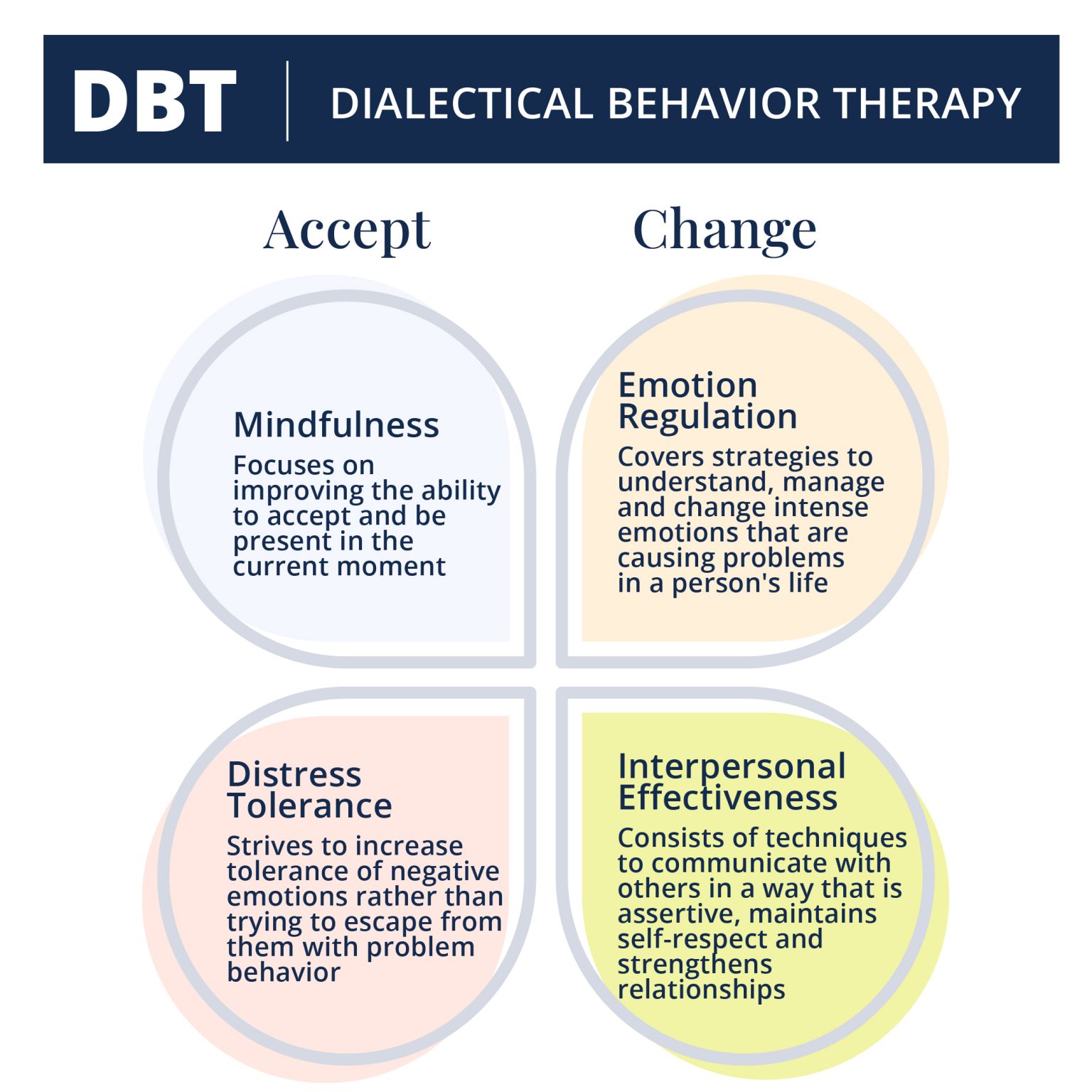Dialectical Behavior Therapy (DBT) is a comprehensive, evidence-based therapeutic approach that merges cognitive-behavioral techniques with mindfulness practices. Designed originally for individuals suffering from borderline personality disorder (BPD), DBT has transcended its initial application and has garnered recognition as a valuable tool for various mood disorders, anxiety-related conditions, and emotional dysregulation. One of the salient features of DBT is its skills training component, which equips individuals with practical tools to enhance emotional resilience and foster well-being. This article delves deeply into the mood-boosting experiences inherent in DBT skills training, elucidating various strategies that promote mental fortitude and stability.
Understanding the Theoretical Framework of DBT
At the core of DBT lies the dialectical philosophy, which espouses the reconciliation of opposites. This principle is foundational when addressing emotional turmoil. DBT posits that individuals can simultaneously hold two opposing ideas: acceptance of their current circumstances and the aspiration for change. This dialectical approach fosters a sense of balance that is essential in navigating life’s complexities. DBT emphasizes the importance of the therapeutic relationship, wherein validation and acceptance from the therapist catalyze transformative self-acceptance for clients. Engagement in DBT facilitates a profound understanding of one’s emotional landscape, rendering individuals better equipped to manage mood fluctuations.
Hyper-focusing on Cognitive Skills for Mood Enhancement
The cognitive skills component of DBT primarily involves the use of effective strategies to identify and reframe negative thought patterns. Techniques such as cognitive restructuring help individuals disentangle from pervasive cognitive distortions that contribute to adverse emotional states. For instance, utilizing thought logs enables individuals to chart automatic thoughts that arise during moments of distress, closely examining their veracity and challenging irrational beliefs. By fostering a critical dialogue with oneself, cognitive restructuring not only enhances mood by alleviating feelings of hopelessness but also cultivates a growth-oriented mindset.
Radical Acceptance: A Pathway to Emotional Equilibrium
Within DBT, radical acceptance stands as a pivotal skill. It refers to acknowledging and accepting reality as it is, rather than how one wishes it to be. This process necessitates a form of mental surrender to the moment, devoid of judgment or resistance. Engaging in radical acceptance can be profoundly liberating, allowing individuals to release themselves from the shackles of anger and frustration associated with unchangeable circumstances. This acceptance diminishes the emotional weight of past traumas and anxiety over future uncertainties, resulting in an immediate positive shift in mood.
Embracing Mindfulness as a Mood-Boosting Mechanism
Mindfulness constitutes a cornerstone of DBT, promoting an acute awareness of the present moment. By harnessing mindfulness, individuals learn to observe their thoughts and feelings without undue attachment or judgment. Engaging in mindfulness meditation has been shown to decrease levels of anxiety and depression while enhancing overall emotional regulation. This practice extends beyond formal meditation; it encourages individuals to integrate mindfulness into their daily lives, transforming mundane activities into rich, immersive experiences. For instance, savoring a meal or engaging in nature walks with a mindful perspective can invigorate the spirit and elevate mood states.
Interpersonal Effectiveness: Cultivating Healthy Relationships
Part of DBT skills training focuses on interpersonal effectiveness—an essential skill set for fostering healthy relationships. Healthy relationships are pivotal in promoting psychological well-being; thus, the ability to communicate assertively and maintain boundaries is invaluable. Through role-playing exercises, individuals learn how to articulate their needs while remaining respectful of others’ boundaries. The interplay of effective communication and problem-solving skills enables individuals to build supportive social networks, mitigating feelings of isolation and enhancing emotional resilience.
Self-Soothing Techniques: Nurturing the Inner Self
In moments of distress, self-soothing techniques serve as crucial tools for diversifying emotional responses. These strategies encompass a broad spectrum of activities designed to promote relaxation and well-being. Such techniques may include utilizing sensory experiences—like indulging in soothing scents, listening to calming music, or engaging in creative expression. The sensory stimulation provided by self-soothing activities redirects attention from distressing emotions while fostering a sense of comfort and security. This element of DBT helps instill a profound self-compassion, which is essential for mood enhancement.
Emotion Regulation: A Toolkit for Stability
DBT provides specific skills for effective emotion regulation, aiming to help individuals recognize and manage their emotional experiences proactively. Techniques such as checking the facts enable individuals to investigate the validity of their emotional responses. By distinguishing fact from interpretation, individuals gain insight into the reasons behind their emotions, which fosters a sense of empowerment. Additionally, learning to increase positive emotional events, such as participating in activities that elicit joy or satisfaction, is instrumental in counteracting negative mood patterns.
Building a Lifestyle of Validation and Support
The training in DBT extends beyond individual practice, emphasizing the importance of building an ecosystem of support and validation. The cultivation of a validation-rich environment fosters interconnectedness, creating a communal atmosphere where individuals can thrive amid emotional fluctuations. Validation from peers, family members, and therapists reinforces the belief that one’s feelings are legitimate, subsequently engendering self-worth. Establishing such networks is integral to maintaining mental health and mood stability.
Conclusion: The Transformative Power of DBT Skills Training
In summation, dialectical behavior therapy skills training is a multifaceted approach focused on enhancing emotional resilience and stability. Through the integration of cognitive skills, mindfulness, interpersonal effectiveness, self-soothing, and emotion regulation techniques, individuals are equipped with an arsenal of strategies to navigate the complexities of their emotional experiences. Importantly, the mood-boosting outcomes of these skills training sessions can significantly enhance quality of life, providing individuals with a profound sense of agency over their mental health. As DBT continues to evolve in application, it stands as a beacon of hope for many grappling with emotional dysregulation, opening avenues toward healing and self-discovery.
